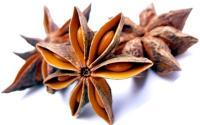
Basil( Ocimum Basilicum) - a popular spice used to improve the taste of food.
The plant is somewhat like peppermint, which is not surprising, because both belong to the same plant family.
There are over 60 varieties of basil, differing from each other, both externally and tastefully.
- Useful properties
- For cardiovascular system
- Contraindications to use
- Active substances
- Use of leaves
- Essential oil
 The plant is widely known for its medicinal properties.
The plant is widely known for its medicinal properties.
For centuries, the basil has been one of the main products of medicine, which has been used to treat a variety of ailments.
The very name "basil" is rooted in the Greek word basilikohn, which means "royal."
In India, a country that is considered the birthplace of basil, the plant is recognized as sacred, and revered by the people.
Useful properties
Basil has long been considered a natural antidepressant.
It is made from medicinal tea, which acts on the adrenal cortex, helps the body stimulate hormones that regulate the body's natural reaction to stress.
Spice is used to treat diarrhea, intestinal parasites, like bitter wormwood( medicinal properties and contraindications), fever and skin infections.
 And what do you know about the use of hellebore for weight loss in the Caucasus? Read about the properties and folk methods in a useful article.
And what do you know about the use of hellebore for weight loss in the Caucasus? Read about the properties and folk methods in a useful article.
About medicinal properties and contraindications of elderberry black flowers is written on this page.
There is an opinion that the grass resembles the action of tarragon, and can help regulate the menstrual cycle.
In addition, basil strengthens the immune system and reduces the uric acid content, which is responsible for arthritis and gout.
Basil is used to treat pain caused by arthritis.
For the cardiovascular system
Basil serves as a good source of vitamin A, the so-called "provitamin A".
Beta-carotene is considered a more powerful antioxidant than vitamin A, because it not only protects epithelial cells from damage by free radicals, but also helps prevent the oxidation of cholesterol( for vascular cleansers read here) in the blood.
The breakdown of free radicals is a factor provoking the development of such diseases as:
-
 asthma,
asthma, - osteoarthritis,
- rheumatoid arthritis.
Beta-carotene found in the basilica can reduce the progression of these conditions, protecting the cells from further damage.
Basil is a source of magnesium , which promotes the prevention of cardiovascular diseases, encouraging muscles and blood vessels to relax, thereby improving blood flow and reducing the risk of heart rhythm disturbances.
Contraindications to the use of
Despite the obvious advantages of the plant, it contains some contraindications, which should be noted.
Basil is not recommended for use during pregnancy( about the benefits of dried apricots written in this article) and breastfeeding.
The plant should be taken cautiously to people with severe heart disease.
In case of a heart attack or stroke, it is worth to refuse from using basil at all.
With caution, it is used for hypotension and vegeto-vascular dystonia, diabetes( table that you can eat) and bleeding disorders.
Active substances
Basil contains a large amount of E-beta-cariophyllene( BCP), which is useful in the treatment of arthritis or bowel diseases.
 Do you know about the healing properties of anise seeds? They are described in the current article.
Do you know about the healing properties of anise seeds? They are described in the current article.
About the useful properties of the horsetail pestles written here.
On the page: http: //netlekarstvam.com/fitnes/ hatha-joga.html you will learn about the benefits of performing asanas of Hatha Yoga.
Basil is one of the few products that naturally stimulates the receptors of the body's cannabinoids, and is capable of blocking signals that lead to inflammation associated with arthritis.
The leaves and stems of the basil contain:
- eugenol,
- citronellol,
- linalool,
- myrcene.
In addition to the beneficial properties of the basil described above, the plant:
- is an excellent source of vitamin K and manganese,
- of copper and vitamin C,
- calcium,
- iron,
- of folic acid,
- of omega-3 fatty acids.
Use of
 leaves The basil is used in various forms.
leaves The basil is used in various forms.
Poultices are made from fresh leaves, and spices are used for seasoning food from chopped seeds.
Thanks to its high content of essential oils, basil is an excellent antiseptic.
With it, you can reduce the itching after a mosquito bite.
From the herbs are made medicinal tinctures, which treat bronchitis and cough, because basil has an expectorant property.
Basil is used in diseases of the lungs, and in combination with the eleventh and hyssop it is brewed into tea, which helps to fight the common cold.
Essential oil
Based on basil, essential oil is produced, whose healing properties have a wide range of effects.
With the help of a tool, fatigue caused by nervous tension is treated.
Basil oil is not taken internally, but, it is used in aromatherapy and massage.
The use of essential oil of basil in massage increases the flow of blood and the amount of nutrients that eliminate fatigue and muscle tension.
Essential oil is used to fight headaches, allergies or asthma, and even hiccups.
On the useful properties of the basilica for human health, see the video.



